Israel-Hamas War: What happened on day 100?
US urges Israel to tone down Gaza war, Netanyahu vows victory • IDF: 522 soldiers killed since October 7, 2,536 wounded
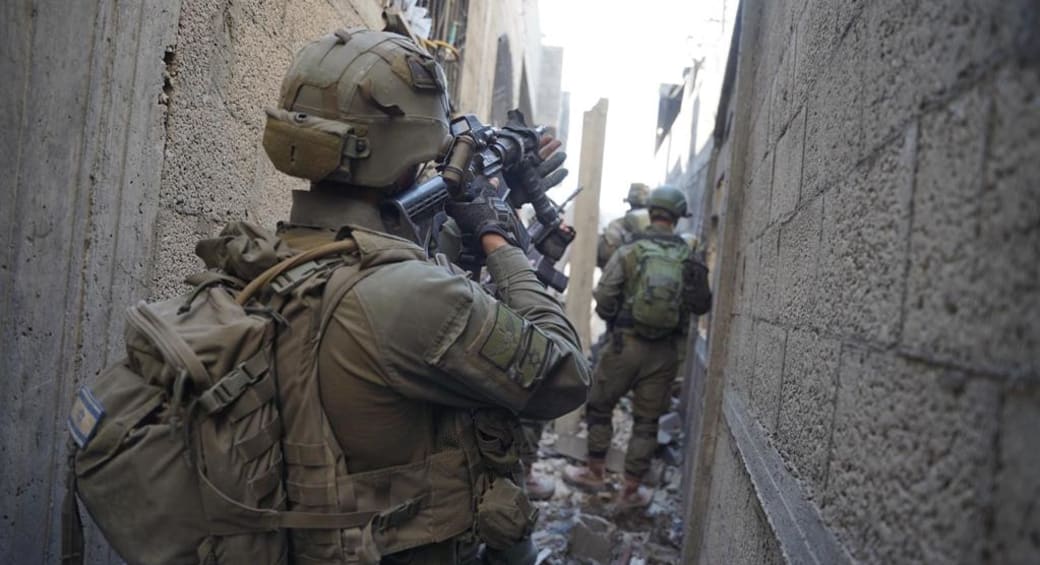
Hezbollah's Nasrallah: What has Israel achieved in 100 days of war? Only killing
Israel failed to achieve even a semblance of victory, the Hezbollah leader added.
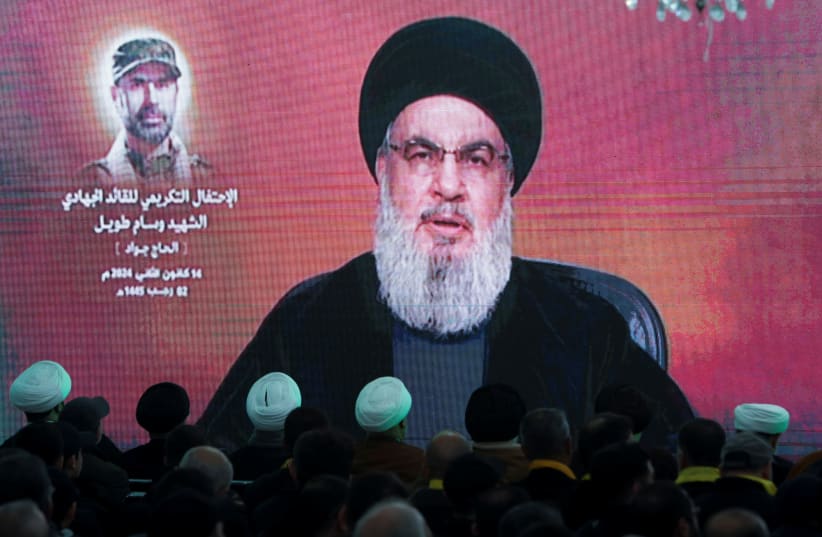
البث المباشر لقناة الميادين https://t.co/XqdON1Q2rz
— قناة الميادين (@AlMayadeenNews) January 12, 2024
"Israel was not able to destroy the resistance, not even the Hamas government. All the areas that were evacuated in the north of the Gaza Strip are currently managed by the Hamas government. The enemy was not able to stop the rockets, even from the north of Gaza. The Israelis say that after 100 days, Israel is mired in failure, and some use the phrase 'a deep hole' from which its leaders do not know how to get out. What did it achieve in 100 days other than killing?
"It failed to achieve even a semblance of victory," Nasrallah added.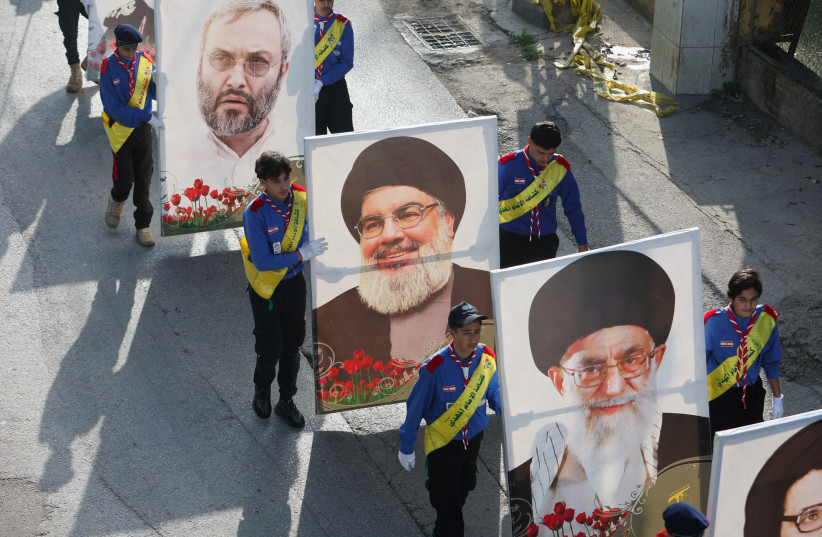
Israeli citizens killed by Hezbollah missile
Two Israeli citizens were killed on Sunday by an anti-tank missile from Lebanon and were later named as 40-year-old Barak Ayalon and his 70-year-old mother Mira, Israeli media reported on Sunday.
Ayalon was part of Kfar Yuval's emergency response squad, where he was killed. His father was also seriously injured in the missile fire.
The IDF responded by targeting an operational command post as well as one other military target belonging to the Lebanon-based Iranian terror proxy, Hezbollah, on Sunday, the IDF stated.
Hezbollah could turn the entirety of Lebanon into a war zone, IDF Chief of Staff Herzi Halevi said in a Saturday evening address.
"Southern Lebanon is a war zone and will remain as such as long as Hezbollah continues operating from within it," Halevi said. "Hezbollah may turn all of Lebanon into a war zone; there will be dire consequences for that," he warned.
Go to the full article >>Hezbollah's Nasrallah: What has Israel achieved in 100 days of war? Only killing
In the shadow of continued fighting in the North of Israel, and more than a week after his last public statement, Hezbollah leader Hassan Nasrallah claimed on Sunday that, "After one hundred days, Israel has not been able to achieve its declared and undeclared goals in the war against Hamas.
"Israel was not able to destroy the resistance, not even the Hamas government. All the areas that were evacuated in the north of the Gaza Strip are currently managed by the Hamas government. The enemy was not able to stop the rockets, even from the north of Gaza. The Israelis say that after 100 days, Israel is mired in failure, and some use the phrase 'A deep hole' from which its leaders do not know how to get out. What did it achieve in 100 days other than killing?
"It failed to achieve even a semblance of victory," Nasrallah added.
Go to the full article >>Israelis killed by Lebanese missile fire, IDF jets strike Hezbollah
A missile fired at Kfar Yuval struck a house, killing two people.
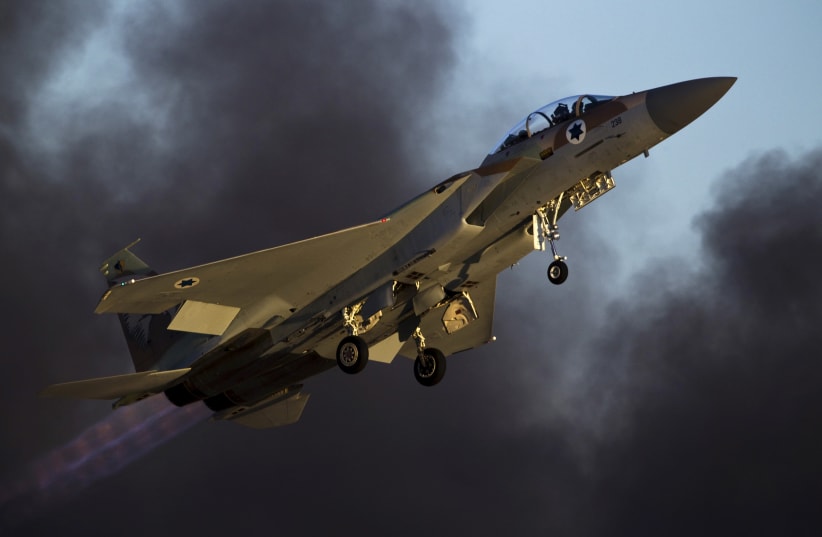
The Israeli citizens killed on Sunday by an anti-tank missile from Lebanon were named as 40-year-old Barak Ayalon and his 70-year-old mother Mira, Israeli media reported on Sunday.
Ayalon was part of Kfar Yuval's emergency response squad, where he was killed. His father was also seriously injured in the missile fire.
The IDF responded by targeting an operational command post as well as one other military target belonging to the Lebanon-based Iranian terror proxy, Hezbollah, on Sunday, the IDF stated.
“At 12:38 p.m., a report was received in MDA Yarden Region's 101 Dispatch Centre of anti-tank guided missile fire in a village in the Upper Galilee,” the MDA spokesperson reported. “MDA Paramedics and EMTs, together with IDF Medical Teams, are providing medical treatment to an approximately 70-year-old female in serious condition, with multi-system injuries. She will be transported by helicopter to hospital.”
IDF eliminates terrorists who infiltrated over Lebanese border
Throughout the day on Saturday, Hezbollah took responsibility for eight separate attacks along the Lebanese-Israeli border.
The IDF eliminated three Hamas-affiliated terrorists who tried to infiltrate into Israel from Lebanon in the Mount Dov area early Sunday morning, according to the IDF Spokesperson's Unit.
Hezbollah has attacked and destroyed significant aspects of the IDF’s surveillance capabilities during the ongoing conflict since October, and there was an extremely misty and opaque haze in the area at the time, including heavy rain.
Akk of this, plus the many large boulders in the area, made it much more difficult to detect the penetration in advance, which enabled the Hamas forces to penetrate a couple hundred meters into the Mount Dov area, though still not close to any Israeli residential areas.
What helped locate the terrorists?
Two factors helped the IDF track and locate the Hamas terrorists.
First, one of the lookout posts saw suspicious movements in real time and radioed that information to Battalion 1706.
Second, Battalion 1706 in the area had a mix of static defense forces, along with patrol forces which were already moving around, and this allowed them to arrive more quickly in a spot where they could intercept the Hamas terrorists’ according to their predicted trajectory.
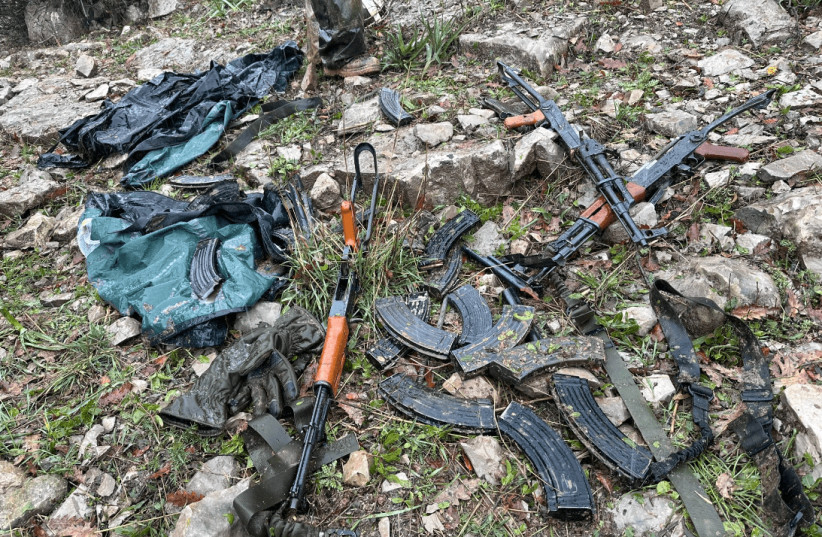
The terrorists were very well-armed with anti-tank missiles, grenades, and significant amounts of ammunition for their Kalashnikov rifles.
Although the IDF forces killed the three Hamas forces, the attackers managed to wound five IDF soldiers, two moderately, and three lightly, when they engaged them with grenades.
The IDF also carried out artillery and mortar fire toward Lebanon during the incident, with Lebanese media reporting over 60 projectiles were fired toward the Shebaa Farms area of Lebanon in the incident.
Initial reports said that the IDF had killed four invaders, but once the sun rose, the weather cleared, and the IDF was able to inspect the site of the battle, they found three dead Hamas bodies.
IDF estimates are that the Hamas terrorists hoped to sneak up on an Israeli installation to destroy it.
Throughout the day on Saturday, Hezbollah took responsibility for eight separate attacks along the Lebanese-Israeli border.
Halevi warns 'Hezbollah may turn all of Lebanon into a combat zone'
IDF Chief of Staff Herzi Halevi warned on Saturday night that "Hezbollah has chosen to act as a 'Hamas shield' under Iran's command, and we are exacting an ever-increasing price from it."
"Those who condition an end of clashes in the north with an end to the fighting in the Gaza Strip will pay increasing prices. So it was, so it will be in the future," added Halevi.
"The security reality in the north is already taking shape these days. We are keeping the Radwan terrorists away from the border and damaging Hezbollah's capabilities that it has built up over the years. We operate freely in Lebanon's airspace and attack any threat we detect."
"The southern Lebanon region is a combat zone, and it will remain so, as long as Hezbollah operates from it. Hezbollah may turn the entire country of Lebanon into a combat zone, this will have a heavy price," warned the chief of staff. "We are prepared for war even today, and are constantly improving our capabilities. We are committed to changing the security situation in such a way that will allow the residents to return to their homes in complete safety - in the north and the south."
Go to the full article >>Israeli killed by Lebanon anti-tank missile fire named as Barak Ayalon
The Israeli citizen killed on Sunday by an anti-tank missile from Lebanon was named as 40-year-old Barak Ayalon, Israeli media reported on Sunday.
Ayalon was part of Kfar Yuval's emergency response squad, where he was killed. His mother was also seriously injured in the missile fire.
Go to the full article >>Gazans to IDF: ‘Hamas leaders hiding abroad, kill them’
“Tell your leaders: Hamas people are abroad, outside of Palestine, screw them outside of Palestine, kill them,” one Gazan said.
In recorded phone calls with IDF officers, residents of Gaza railed against Hamas and its leadership. The recordings were published by the IDF on Sunday.
The conversations took place between residents of the besieged Strip and officers of Unit 504 in the Intelligence Division.
“Tell your leaders: Hamas people are abroad, outside of Palestine, screw them outside of Palestine, kill them,” one Gazan said. “I am telling you in the name of our nation. I am sitting alone, and I'm screwed. Everything's destroyed. They're all abroad, sitting around in hotels. F**k them up. Curse their fathers. Sitting around in hotel rooms. “
Hamas are "dogs"
Another Gazan referred to Hamas as “dogs” and said that Allah would curse them.
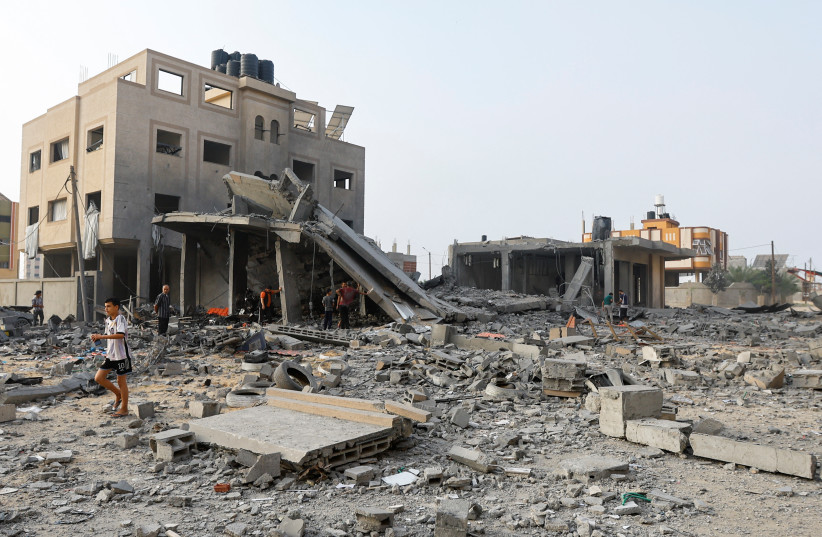
“Listen, listen to what the people around me are saying, may Allah protect us from you, Hamas,” the Gazan said. “Allah will curse them, Allah will curse them and those that voted for them…
“They destroyed us, pushed us 100 years into the past. May Allah bring disaster upon them. Our people are their hostages. Those dogs are taking advantage of their power over us.”
Go to the full article >>WATCH: IDF identifies, eliminates terrorist advancing on Israeli position
In Khan Yunis, the IDF has confirmed the killing of a total of nine terrorists over the past day. The terrorists were reportedly targeted by a joint effort by the air force and ground forces.
IDF troops identified and eliminated terrorists operating across Gaza and destroyed a number of launch pits from which rockets had been fired at Israel, the IDF announced on Sunday morning.
Over the course of operational activities in Al-Maghazi, in central Gaza, IDF soldiers identified two terrorists advancing toward a compound where troops were located, the IDF stated. Ground troops subsequently directed the aircraft that targeted and killed the terrorists.
A video published by the IDF that reportedly shows the strikes appears to reveal one of the terrorists holding a rifle as he and the other terrorists run forward.
Rocket launch pits destroyed
In the neighborhood of Al-Atatra in the northern Gaza city of Beit Lahiya, the IDF said it found and destroyed launch pits used to fire rockets at Israel.
During activities in the southern Gaza city of Khan Yunis, Israeli forces identified and, directing an IDF aircraft, killed an additional two terrorists operating in the area, the military stated.

Concurrently, IDF tanks reportedly eliminated five terrorists inside a subterranean tunnel in Khan Yunis.
In Khan Yunis, the IDF has confirmed the killing of a total of nine terrorists over the past day, the IDF noted. The terrorists were reportedly targeted by a joint effort by the air force and ground forces.
Go to the full article >>Israel readies for possibility of pregnancies in female hostages raped by Hamas
When the pregnancy is a result of a terrorist who previously murdered her relatives and brutally raped her, the emotional aftermath is unimaginable, leaving lasting psychological scars.

The Israeli medical community, usually reluctant to consider such scenarios, has recently actively been preparing for the appalling possibility of several female hostages who were raped in captivity and subsequently become pregnant.
According to sources who spoke with Maariv, there have been comprehensive discussions in hospitals across the country about preparing for the return of Israeli hostages who have been sexually assaulted by Hamas terrorists and are currently at different stages of pregnancy.
Israeli law permits abortions, granting women the autonomy to decide their course of action. However, the state is now faced with the daunting task of addressing the enduring trauma that will affect the victims and their families for a lifetime.
Sunday represents the 100th day since the Hamas massacre, and among the 136 hostages still held by Hamas terrorists in the Gaza Strip are women who are shrouded in a heavy cloud of concern, a topic not discussed enough. Reports from October 7 indicated that the terrorists committed heinous acts of rape, and testimonies from some of the returned hostages suggested that the women endured sexual harassment, possibly including rape, while in captivity.
These disturbing assessments have prompted gynecologists to hold internal discussions in recent weeks about the dreadful possibility that captives were raped and have been pregnant for several weeks.
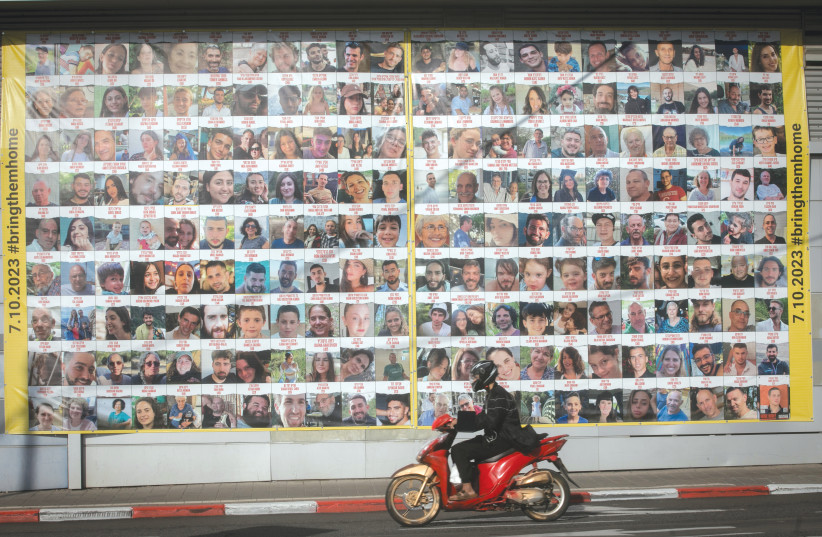
Risks of pregnancy
Each passing day not only heightens the risk for the pregnant captive, as the woman's body is in a state of specific immunosuppression during pregnancy, but the challenging hygienic conditions in the Strip also increase the risk of severe infections and endanger the mother from severe pregnancy complications without any medical oversight. Perhaps most significantly, it's the profound psychological trauma of a woman carrying a fetus resulting from the brutal rape by a murderous terrorist.
Unlike many countries where abortion is prohibited or allowed only up to the 23rd week of pregnancy, Israeli law permits abortions up to the moment of birth. Abortions can be authorized by a regular termination committee up to the 24th week of pregnancy. Beyond this period, terminations are overseen by a special committee of senior doctors, which also consider cases of fetuses with congenital disabilities, the mother's mental health, or even pregnancies resulting from rape. In Israel, both committees consistently approve abortions in rape cases.
In the early stages of pregnancy, abortions are carried out using Cytotec pills, which cause the opening and contraction of the cervix and the expulsion of the pregnancy, and Mifepristone, which inhibits the action of the hormone progesterone necessary for pregnancy development. However, as time passes, there is increasing concern that captives will have to undergo a late termination of pregnancy, in which drugs are used to stop the fetus's heart activity with a needle. The later the abortion is performed, the higher the medical risk to the mother and her chances of future pregnancies.
Medics prepare for scenario
Teams of gynecologists in medical centers nationwide have already appointed professionals to prepare for such a catastrophic scenario. The doctors emphasized that the medical aspect is based on established protocols for pregnancy termination. However, Israel must now grapple with the most challenging element: the severe psychological impact on a captive woman who has conceived.
"The human brain struggles to comprehend the situation of a captive in captivity who must deal not only with the pregnancy but also with the fact that it was conceived through the brutal rape by a murderous terrorist," said Prof. Tal Biron-Shental the chair and director of the Obstetrics and Gynecology division at Meir Medical Center in Kfar Saba.
"Performing an abortion is a procedure we are all familiar with and skilled in. However, the primary challenge the state must now address is the horrific and daunting psychological trauma. A pregnant woman, feeling fetal movements and with a visibly growing belly, naturally attaches to the fetus.
The hostages' psychological trauma
But when the pregnancy is a result of a terrorist who previously murdered her relatives and brutally raped her, the emotional aftermath is unimaginable. It will leave lasting psychological scars on the woman and her family for years. Unfortunately, Israel's mental health system is so inadequately resourced, with long waiting times and insufficient services for the entire population in need.
I am uncertain how they will cope, but we must prepare now for this terrible theoretical possibility of a woman conceiving or raising such a child. Thus, we must stop this atrocity, not allow the captives to perish there, bring them back, and provide them with care. This commitment is the obligation of the world that remains silent," Biron-Shental added.
Prof. Hagai Levine, chairman of Israel's Association of Public Health Physicians and head of the medical department of the Captives Families Headquarters, explained, "The task of terminating an advanced pregnancy becomes increasingly complex and challenging as the days in captivity progress. Stress, polluted environments, and the absence of medical supervision amplify the complications and dangers of pregnancy for the mother, even before considering the appalling psychological aspect. We have been pressing for a long time with requests to allow medical examinations and the transfer of medications. If there is a captive woman who, God forbid, has conceived from rape, it is imperative to bring her home urgently."
Go to the full article >>IDF names soldier killed in battle in southern Gaza
Kabeda served in the 603rd Combat Engineering Battalion in the 7th Armored Brigade.
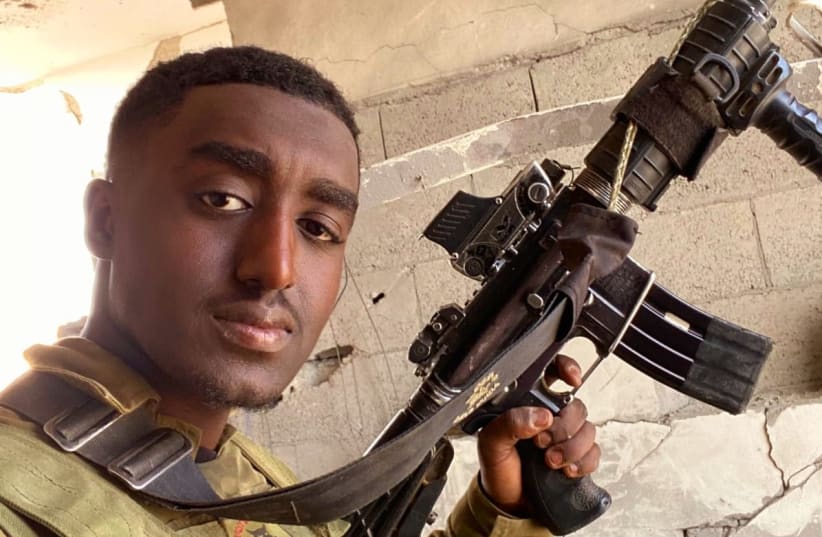
IDF Sgt.-Maj. (res.) Andu’alem Kabeda, 21, from Kiryat Gat, fell in battle in the southern Gaza Strip, the IDF Spokesperson's Unit said on Sunday morning.
Kabeda served in the 603rd Combat Engineering Battalion in the 7th Armored Brigade.
IDF awards soldier posthumously
The IDF added that the Sergeant-Major received his rank posthumously after being promoted from the rank of Sergeant.
Additionally, in the battle in which Kabeda was killed, an officer in the 603rd Battalion was severely wounded.
Kabeda's funeral will take place at 2:00 p.m. on Sunday at the military cemetery in Kiryat Gat.
Go to the full article >>Trial against Israel at the Hague showcases the absurd - editorial
The absurdity is that we need to keep defending an offensive that we didn’t want, for a war we didn’t start.
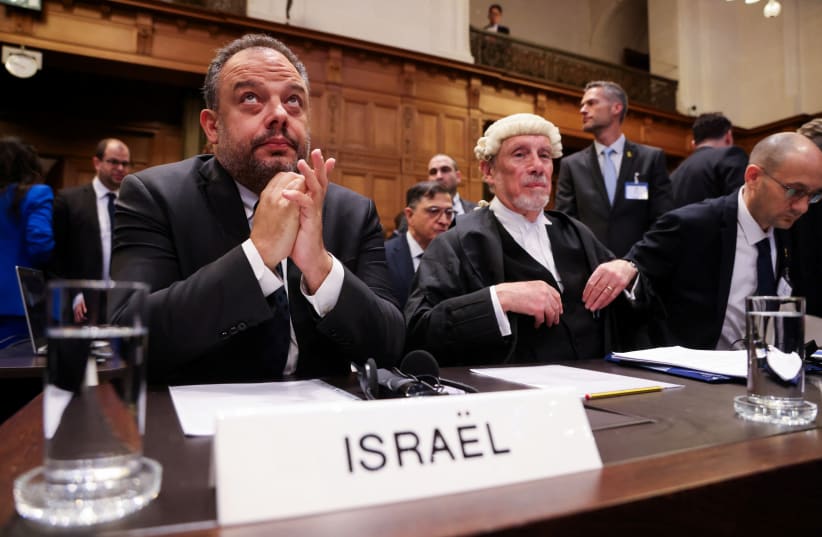
It’s been 100 days. 100 days of war, worry, sorrow, and the absurd, the culmination of which took place on the global stage at The Hague.
Watching South Africa use extreme statements said by our politicians as though showing a highlight reel to paint Israel in a genocidal light was absurd. Watching Israel defend itself was equally as absurd, though perhaps one good thing it did was bring terms back to the vernacular of the general public, terms like “genocide,” “international law,” and “compliance,” long-held captive as empty slogans by the Left. Perhaps that awareness is worth it.
The absurdity is that we need to keep defending an offensive that we didn’t want, for a war we didn’t start, which has the potential to light up the rest of the region. The horrors, and the glee with which those horrors were carried out, were put on display this week ahead of the trial.
Some 1,200 of our people were murdered in one long continuous act of terror, and from then, as one Israeli news anchor put it in an interview earlier in the war, the clock began to tick, and very quickly ran out, it seems, on Israel’s legitimacy as a victim, on the rightful excuse it has to fight back.
South Africa’s arguments on Thursday proved that the clock has long since run out in the eyes of many in the international community; perhaps it never really existed in the first place. And, that the destruction and tragedy out of Gaza is so much more visibly powerful, a much more convincing narrative of victimhood; as though nuance cannot exist in this conflict.
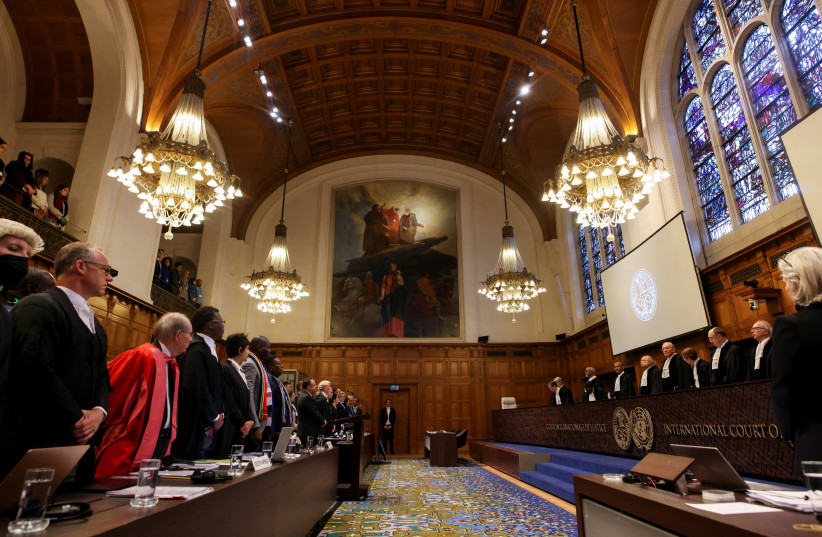
Israel’s legal team flipped that narrative on its head, showing that South Africa effectively functions as the legal arm of the Hamas terrorists who carried out the massacres of October 7.
International law expert Tal Becker’s opening words at The Hague righted this absurdity: “If there have been acts that may be characterized as genocidal, then they have been perpetrated against Israel. If there is a concern about the obligations of states under the Genocide Convention, then it is about their responsibilities to act against Hamas’s proudly declared agenda of annihilation, which is not a secret, and is not in doubt.”
What choice does Israel have?
But even if you put that aside, even if you disagree; what is happening in Gaza is a tragedy. However, it is not one caused by Israel’s hand; the heaps of weapons, tunnels, and infrastructure, all used for terrorist activities against Israel instead of building up prosperity and pushing for a higher quality of life for Palestinians in Gaza, show that this never stood a chance. Gaza is one big, booby-trapped tunnel-filled enclave. What choice does Israel have, and what choice does it have in how the world sees it?
We know that if Hamas were to hold up their weapons and return our hostages, this would all end in a second.
Ambassador to the UN Gilad Erdan put the absurdity up as a mirror to the international community, in a speech marking 100 days since October 7 at UN headquarters in New York on Friday: “100 days have passed since the massacre, and not even one discussion was held on releasing the hostages. 100 days where 136 women, children, and elderly are being held in Hamas tunnels, and there is yet to be a single discussion dedicated to their release. Not even one. Hamas has not even allowed the Red Cross to visit the hostages. We are talking about one of the worst war crimes there is!”
With so much going on and so much that has happened over the last 100 days, there can be times when we forget, but we cannot: 100 days and counting of our innocent brothers and sisters who were taken hostage, against their will and without provocation, with barely any signs of life and no indication of humanity from their captors otherwise. This needs to be something we wake up and go to sleep with until they are home.
That is what we are fighting for; that is what we have been fighting for all along, to preserve life. It’s been 100 days too many; bring them home.
Go to the full article >>Israel-Hamas war: All you need to know
- Hamas launched a massive attack on October 7, with thousands of terrorists infiltrating from the Gaza border and taking some 240 hostages into Gaza
- Over 1,200 Israelis and foreign nationals were murdered, including over 350 in the Re'im music festival and hundreds of Israeli civilians across Gaza border communities
- 136 hostages remain in Gaza, IDF says